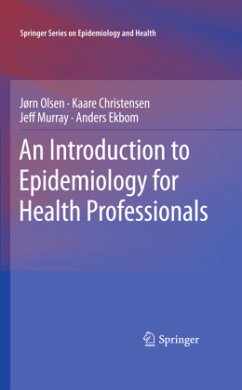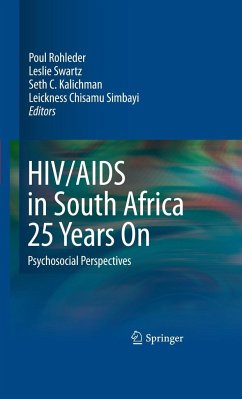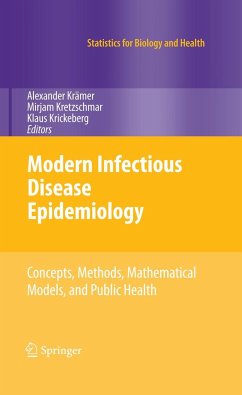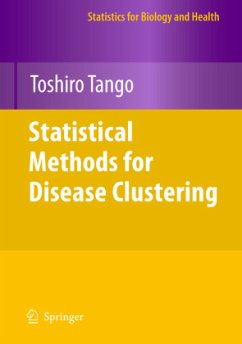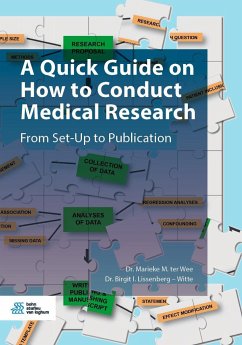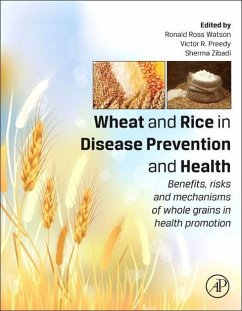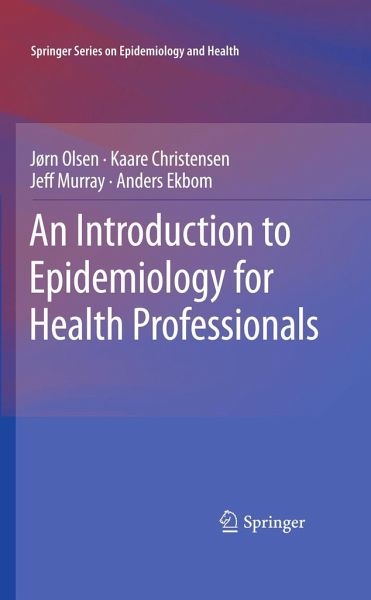
An Introduction to Epidemiology for Health Professionals

PAYBACK Punkte
34 °P sammeln!
An Introduction to Epidemiology for Health ProfessionalsJorn Olsen, Kaare Christensen, Jeff Murray, and Anders EkbomWho gets sick? What factors-genetic, environmental, social-contribute to their illness?Easy enough to ask, but the answers are becoming increasingly complicated. Today, as the public worries about emerging diseases and the word epidemic is part of the general discussion, epidemiology should be a basic component of medical training, yet often it is undertaught or even neglected. Concise and readable while also rigorous and thorough, An Introduction to Epidemiology for Health Profe...
An Introduction to Epidemiology for Health Professionals
Jorn Olsen, Kaare Christensen, Jeff Murray, and Anders Ekbom
Who gets sick? What factors-genetic, environmental, social-contribute to their illness?
Easy enough to ask, but the answers are becoming increasingly complicated. Today, as the public worries about emerging diseases and the word epidemic is part of the general discussion, epidemiology should be a basic component of medical training, yet often it is undertaught or even neglected. Concise and readable while also rigorous and thorough, An Introduction to Epidemiology for Health Professionals goes beyond standard textbook content to ground the reader in scientific methods most relevant to the current health landscape and the evolution of evidence-based medicine-valuable keys to better understanding of disease process, effective prevention, and targeted treatment. This volume:
Presents material accessibly for readers who may have not studied epidemiology.
Focuses equally in descriptive and analytic branches of epidemiology.
Demonstrates applications of descriptive and analytic methods in public health, genetic epidemiology, and clinical epidemiology.
Includes a "Sources of Error" section addressing problems in inference and decision-making, selection bias, and other common pitfalls.
In addition to its usefulness for graduate students in public health and medical students in clinical epidemiology, An Introduction to Epidemiology for Health Professionals is a timely reference for practitioners needing a refresher in this important discipline.
Jorn Olsen, Kaare Christensen, Jeff Murray, and Anders Ekbom
Who gets sick? What factors-genetic, environmental, social-contribute to their illness?
Easy enough to ask, but the answers are becoming increasingly complicated. Today, as the public worries about emerging diseases and the word epidemic is part of the general discussion, epidemiology should be a basic component of medical training, yet often it is undertaught or even neglected. Concise and readable while also rigorous and thorough, An Introduction to Epidemiology for Health Professionals goes beyond standard textbook content to ground the reader in scientific methods most relevant to the current health landscape and the evolution of evidence-based medicine-valuable keys to better understanding of disease process, effective prevention, and targeted treatment. This volume:
Presents material accessibly for readers who may have not studied epidemiology.
Focuses equally in descriptive and analytic branches of epidemiology.
Demonstrates applications of descriptive and analytic methods in public health, genetic epidemiology, and clinical epidemiology.
Includes a "Sources of Error" section addressing problems in inference and decision-making, selection bias, and other common pitfalls.
In addition to its usefulness for graduate students in public health and medical students in clinical epidemiology, An Introduction to Epidemiology for Health Professionals is a timely reference for practitioners needing a refresher in this important discipline.





